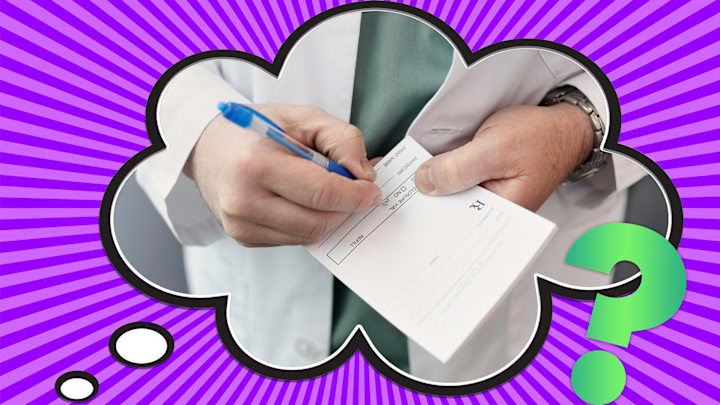Being able to diagnose yourself and self-prescribe medication accordingly might seem like one of the greatest perks of being a doctor. But are they actually allowed to do that?
As GoodRx Health explains, it depends on the prescription, the circumstances, and the physician’s location. In most states, it’s illegal to self-prescribe controlled substances: a category that includes opioids, Adderall, Xanax, and basically anything else with a high potential for abuse and/or addiction. There are fewer laws against self-prescribing non-controlled substances, which includes medications that treat chronic conditions like high blood pressure, high cholesterol, diabetes, and asthma. Birth control and antibiotics are also classified as non-controlled substances [PDF].
Although self-prescribing some medications in some places is technically legal, it’s still widely discouraged. According to the American Medical Association’s Code of Medical Ethics, “physicians should not treat themselves or members of their own families” in general, with two exceptions: “in emergency settings or isolated settings where there is no other qualified physician available,” or “for short-term, minor problems.”
The arguments against self-prescribing are fairly self-evident: It’s tough to be objective when you’re acting as both physician and patient; and there’s a good chance the issue lies outside your own specialty. Dermatologists, for example, aren’t exactly the best doctors to diagnose and prescribe medicine for a heart problem.
There are financial considerations, too. Dr. Stephanie Pearson—co-founder of PearsonRavitz, a personal insurance brokerage that specifically deals with physicians’ disability and life insurance—explained on the company blog that self-prescribing can cause problems for physicians taking out insurance policies.
“Insurance carriers will check your pharmacy history for the last five to seven years, and the medications they find will spark medical record searches,” Pearson wrote. “Self-prescribing often leads to automatic declinations with traditional carriers. Carriers often view acts such as self-prescribing or having scripts with no paper trail as you not receiving proper care [or] follow-up, or that you are trying to hide something.”
In short, self-prescribing is more of an ethically complex practice than a customary doctor perk.
Have you got a Big Question you’d like us to answer? If so, let us know by emailing us at bigquestions@mentalfloss.com.
